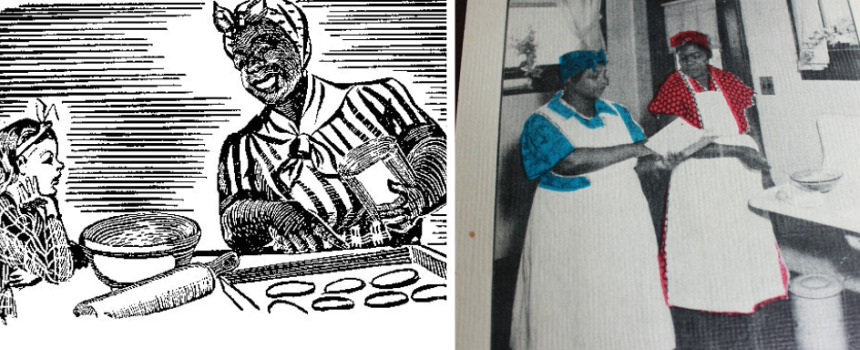This Friday when Michelle Obama welcomes top chefs and food professionals from around the globe to the White House to introduce the latest ingredient in her recipe for changing the food habits of America’s kids, the women of The Jemima Code and I will be among the privileged in chefs coats stirring the pot.
Through a partnership with food professionals’ organizations such as Share Our Strength, the National Restaurant Association, the International Association of Culinary Professionals (IACP), Women Chefs and Restaurateurs (WCR), and Les Dames d’Escoffier, chefs and cooking teachers will exchange ideas about increasing nutrition awareness as Mrs. Obama launches the Chefs Move to Schools program.
Her idea is simple really. Because chefs have a unique ability to deliver health messages in fun and creative ways, Chefs Move to Schools was created to challenge culinary experts to adopt a school and work with teachers, parents, school nutrition professionals and administrators to help educate kids about food and nutrition, according to the website, www.letsmove.gov.
Chefs Move will be operated by the Agriculture Department and will pair chefs with interested schools in their communities so they can create healthy meals while teaching young people about nutrition and making balanced and healthy choices. The White House assembly will include culinarians who want to join the campaign, as well as those who are already empowering children toward healthy, productive futures. Like me.
When I the built The SANDE Youth Project in 2008 after 25 years of using written words to teach readers about cooking and nutrition, I returned to the same foundation of oral tradition that my ancestors used to impart proficiency, morals, self-esteem and respect for the community to their children and the children of their employers. This illustration from Marion Flexner’s 1941 cookbook, Dixie Dishes, was published to keep black women in their place by contrasting the child-like housewife to a massive cook towering above. For me it simply proves that African American cooks have always been skilled culinary educators, whether credited for their knowledge or not. And that truth informs both my hands-on and written work.
Both SANDE and the women of The Jemima Code communicate important life skills and the tenets of healthy eating while making tasty recipes. Both teach by including the student in the process. And, both rely on age-old wisdom. The difference is that elementary school-age kids at SANDE learn from high school and college students.
The pilot program expands the Healthy Families Initiative at the University of Texas Elementary School through a community partnership with UT’s Division of Diversity and Community Engagement. The kaleidoscope of student-led gardening, heritage, and nutritious-cooking activities nourish and empower underprivileged families the way that Mrs. Obama’s Let’s Move campaign returns responsibility for the health of children to the community. It is a unique approach, also instilling 10 Core Values in the areas of Spirit, Attitude, Nutrition, Deeds, and Emotions (SANDE).
At SANDE, we hope to give kids a head start on healthy futures, at the kitchen table, one meal at a time. Students follow their food from seed to plate. They learn the importance of kitchen organization and safety. Develop the taste for food that is fresh and preservative- and additive-free. Discover that it is the raw egg that makes their favorite cookie dough unsafe to eat before baking. And, they gain literacy from reading recipes and writing their own cookbook while manipulating fractions and solving questions of chemistry. The kids are not, however, learning how to cook diet food.
After two hours pounding chicken breasts, grinding and toasting their own homemade bread crumbs, and shredding Parmesan cheese for chicken Parmesan, tasting a dozen green leaf varieties before assembling salad, and churning their own homemade ice cream, a group of giddy 10-year-olds hurries excitedly to set the table for lunch. One of the boys who came to class thinking that cooking was girly described the SANDE experience best when he stated:
“Man, I can’t believe I made this.”
A few bites later, he added, “I can’t believe this tastes so good.”
When lunch was over, he exclaimed: “I can’t believe I made this and that it tastes so good!”
Now that is what I’m talking about.
As encouragement to keep them cooking, I shared this tidbit from Aunt Julia and Aunt Leola, authors of Aunt Julia’s Cookbook, the Standard Oil Company of Pennsylvania’s 24-page collection of simple Carolina Low-Country recipes. The message seems especially fitting today.
“For Happy Eating Use These Recipes.”



Can’t wait to hear about the adventure to meet Mrs. Obama. This is so important and timely. Keep up the good work! Johanna
So excited to hear about how the trip goes! Best of luck!
Congrats on the WELL deserved honor!
as church folks like to say, hallelujah! i’m almost as excited for you as you are for the experience — of sande’s potential and the white house honor. mazel tov.
Your supporters want to see and hear all the details of this phase of your project! Post soon! Congratulations!!
We are so glad you will be at our school!
I have noticed you don’t monetize your blog, don’t waste your traffic, you can earn extra cash every
month because you’ve got hi quality content. If you want to know how
to make extra $$$, search for: Ercannou’s essential tools best adsense alternative